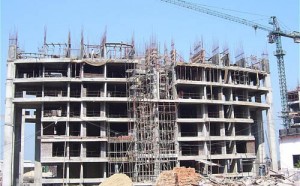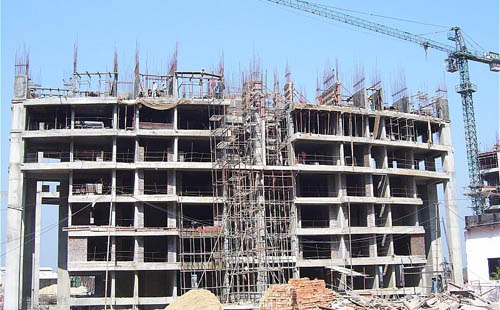Bottom Line: Though ‘ease of doing business’ is a desirable element on part of both the business owners as well as the policy makers, Mumbai real estate eco system has not progressed much beyond the lip service.
 The ‘ease of doing business’ is even more challenging when it comes to the business of real estate and construction where there is over regulation beyond RERA in terms of the developers running from one department to the other for mandatory NOCs, clearances & approvals.
The ‘ease of doing business’ is even more challenging when it comes to the business of real estate and construction where there is over regulation beyond RERA in terms of the developers running from one department to the other for mandatory NOCs, clearances & approvals.
The Devender Fadnavis Government in Maharashtra has gone on record to announce that real estate needs to get its easy approval mechanism. The State Government has, in fact, announced a number of measures to make sure the red tape is removed from the system that is a major cause of project delays.
From making online of building plan approval system to GIS (Geographic Information System) mapping of projects and integrating similar departments to allowing the residents to modify their apartment, a number of measures have been initiated to make the system fast and transparent.
The experience on the ground nevertheless suggests that the Mumbai real estate has to go a long way before ‘ease of doing’ business hits the ground in the true sense of the term. It has to make tangible difference to the builders as well as the home-buyers.
Rohit Rangarajan booked a flat in Mumbai some eight months back. Recently on a recce of the project he found out that not much had started in terms of the construction. On enquiry, the developer explained that the he is waiting for some of the key mandatory approvals by the government authorities. The developer even expressed helplessness that the project can not get into a fast forward mode of construction unless the BMC (BrihanMumbai Municipal Corporation) helps with faster approvals.
This completely surprised Rangarajan who was reading the newspaper reports all this while that the government is determined to remove the red tape from the system of real estate and construction. Was it just a lip service?
“We rank pretty low in terms of ‘ease of doing business’. The real estate market is particularly plagued by project delays where in many cases the developers are transparent to show us that it is not their fault but the system that makes the project delayed. In my experience nothing has changed on the ground beyond the big ticket announcements by the government,” says Rangarajan.
Myths & realities of ‘ease of doing business’
Online system and fast track clearances announced
Various approval departments integrated
Number of approvals reduced from 119 to 58
Despite all the steps in the right direction, bottlenecks continues
Comprehensive alignment of real estate eco system needed
The developers, on their part, admit that though some changes have happened but the eco system has to go a long way before all the big announcements of the Maharashtra Government actually translates into reality. The fast track clearance of the project is still a challenge in Mumbai.
Kaizad Hateria, Brand Custodian & Chief Customer Delight Officer, Rustomjee Group says real estate sector across India had always witnessed long processes and delays in approval process, thereby affecting the property cycle at large. However, with a slew of favorable policy changes and big announcements like Real Estate Regulator, there has been a tremendous change in the scenario.
“The BMC recently brought down the number of approvals to 58 from 119 that a developer needs to take before commencing a project. This has resulted in reduction of the time taken to get the approvals in place. Besides, the approved single window clearance which is likely to be implemented soon will further speed up the approval process. Additionally, consumer centric facility like e-registration has further simplified home buying experience for the potential buyers which has not just fastened the process but has also brought transparency in the realty market,” says Hateria.
Manju Yagnik, Vice Chairperson, Nahar Group feels the implementation of ease to do business will take some time as there are various factors to be addressed before we see actual results. In principle the Municipal Corporation has agreed it and announcement has been made. This is a good beginning as it is a positive development for the real estate sector with number of approvals coming down, as projects will get completed much faster with less time spent on approval. This being in line with government’s promise of ‘ease of doing business’ and single window clearance, will also reduce the final cost of homes to buyers.
“For the industry, it will help root out anomaly between various government departments which is also a tedious time consuming exercise. The end users are definitely going to benefit as now the final cost to home-buyers will be much lower and loan repayment can be scheduled accordingly due to timely delivery. The developers too can now schedule repayment of debts and loans much sooner thus paying lesser interest as the tenure of loan will come down. This is a win-win situation for the housing industry and the buyers as a whole,” says Yagnik.
Timely delivery of real estate projects is one of biggest crisis plaguing the sector now. It is generally believed that most of the delays occur either due to a lack of co-ordination between various government departments and clearances that are stuck at the state government level and also clarity or misinterpretation of policies, which directly affects the project timelines. Approval process typically takes at least one and half year for all clearances to come in.
There are various departments that projects need clearances from but the most time consuming approvals are for clearances from the forest, environment and land acquisition departments. Single window clearance will take care of lack of coordination between government agencies and departments.
As per the industry’s own back of envelope calculation, obtaining construction permits account for 46 per cent of the total construction cost. Reducing this cost will ease property prices to a greater extent. Government’s initiatives and measures in this direction will largely benefit not just the developers but consumers at large.
The new measures are aimed at reducing the construction timelines, thus reducing the overall project cost. However, the beginning to this new eco system is pretty slow and the policies have to go a long way before the ‘ease of doing realty business’ is seen on the ground.





